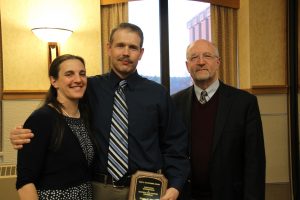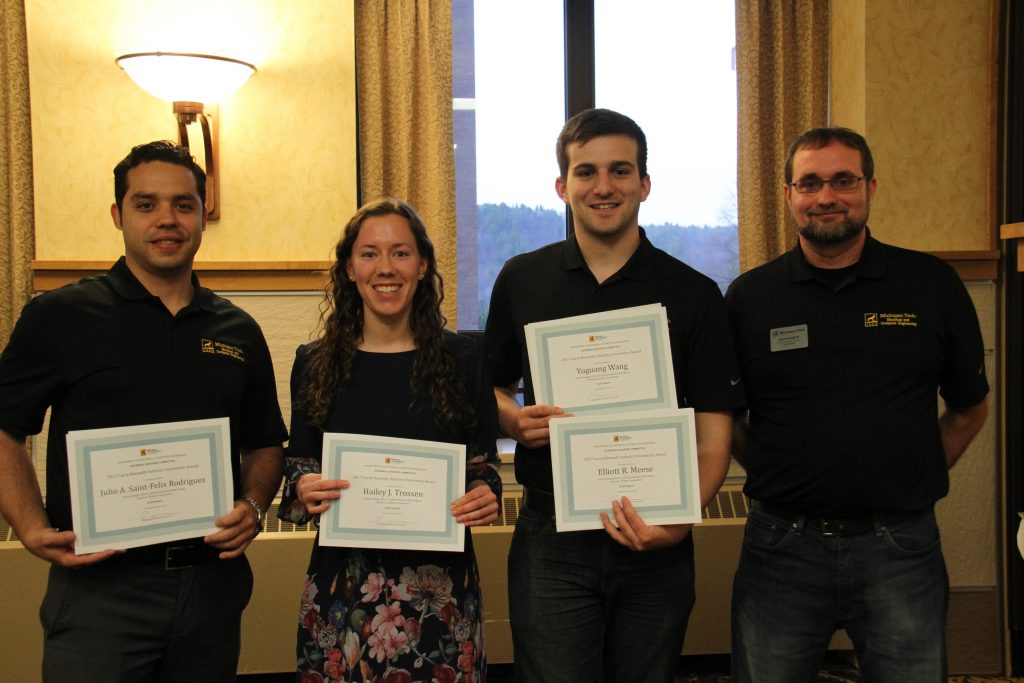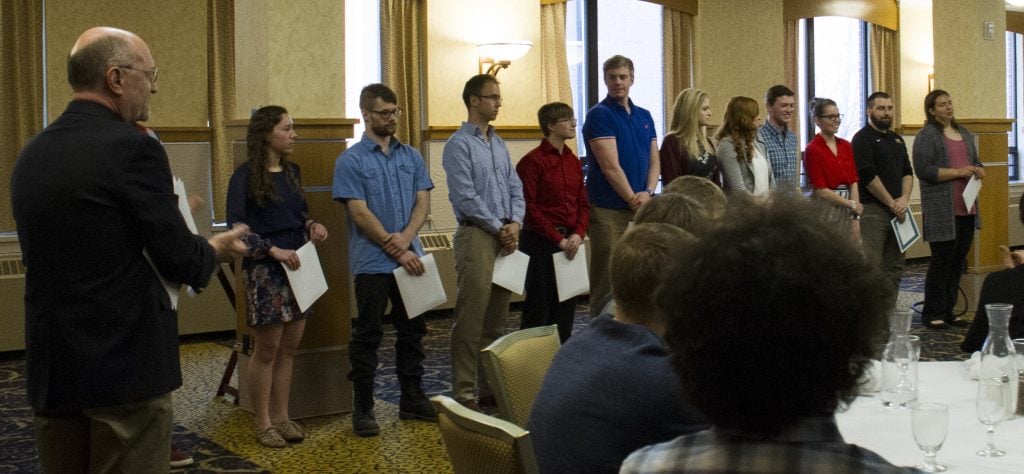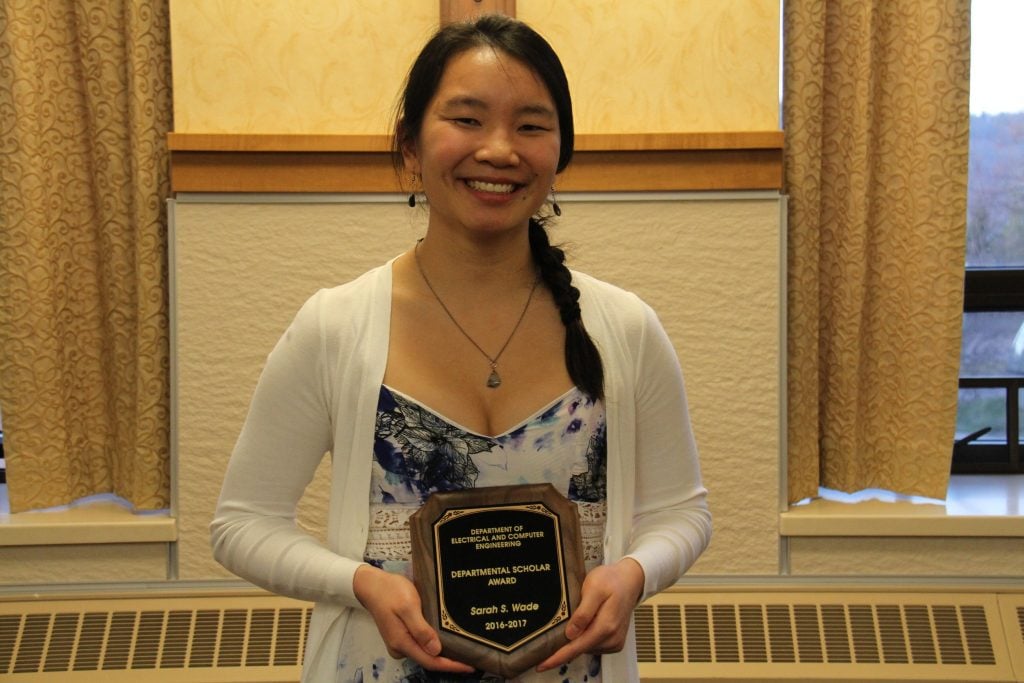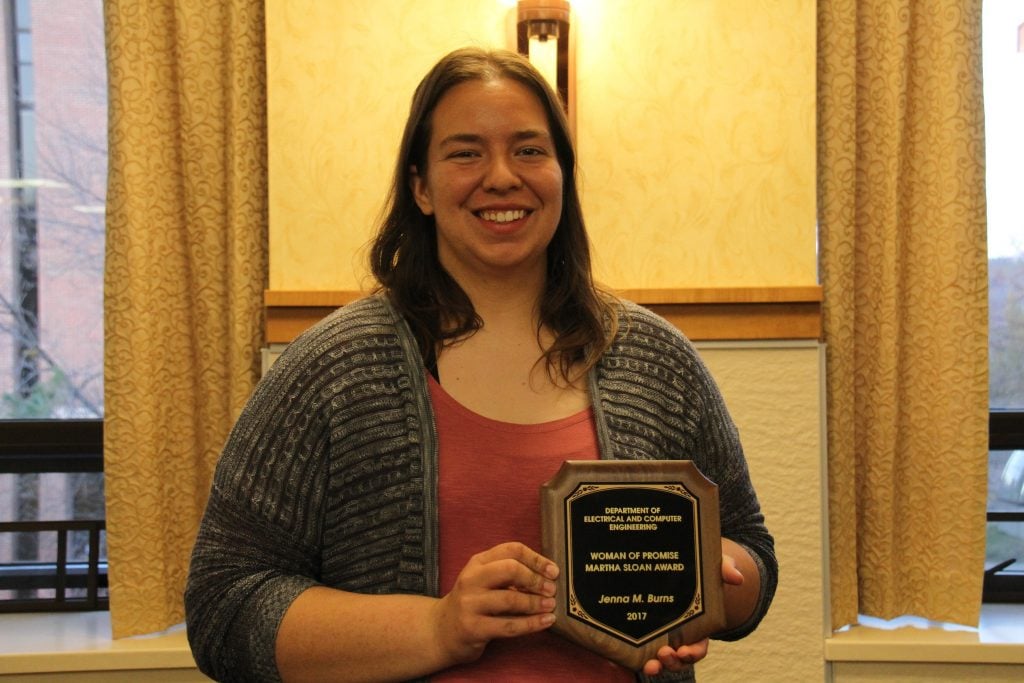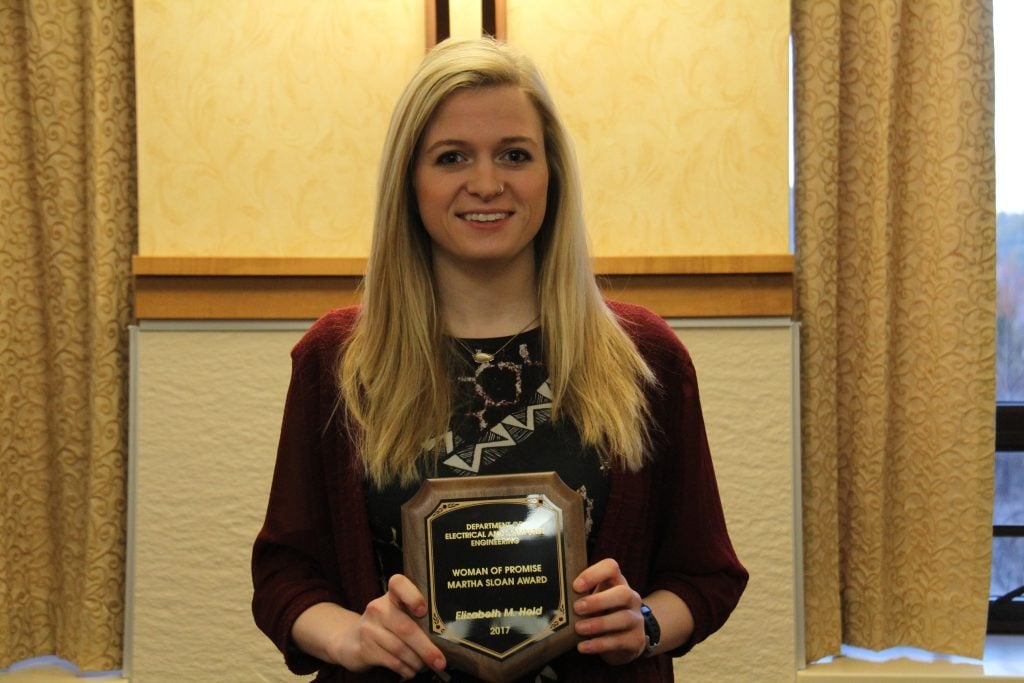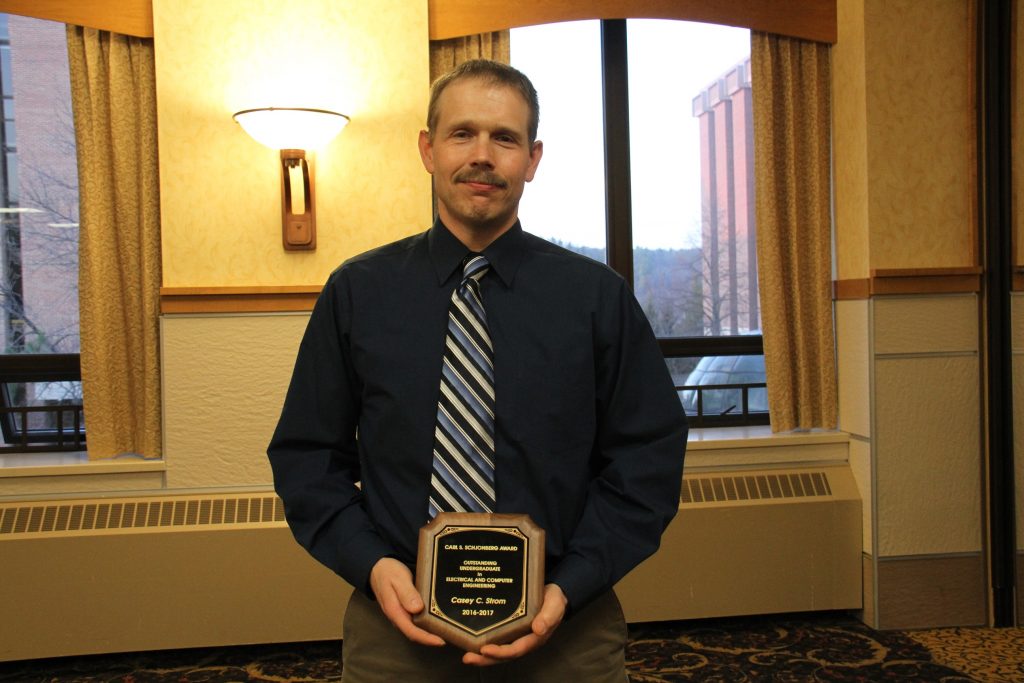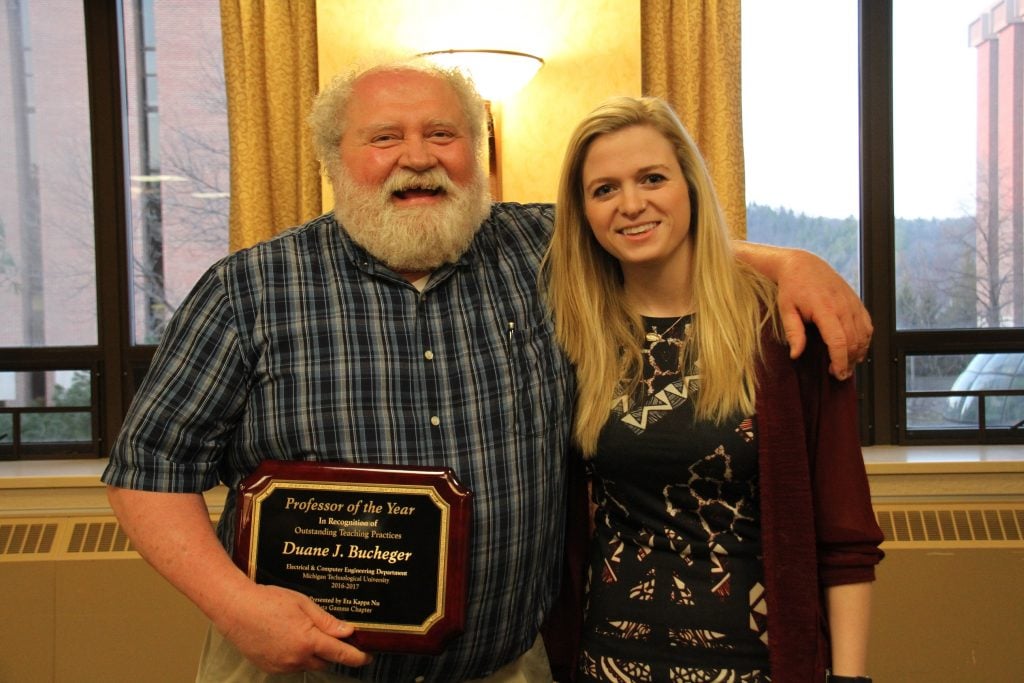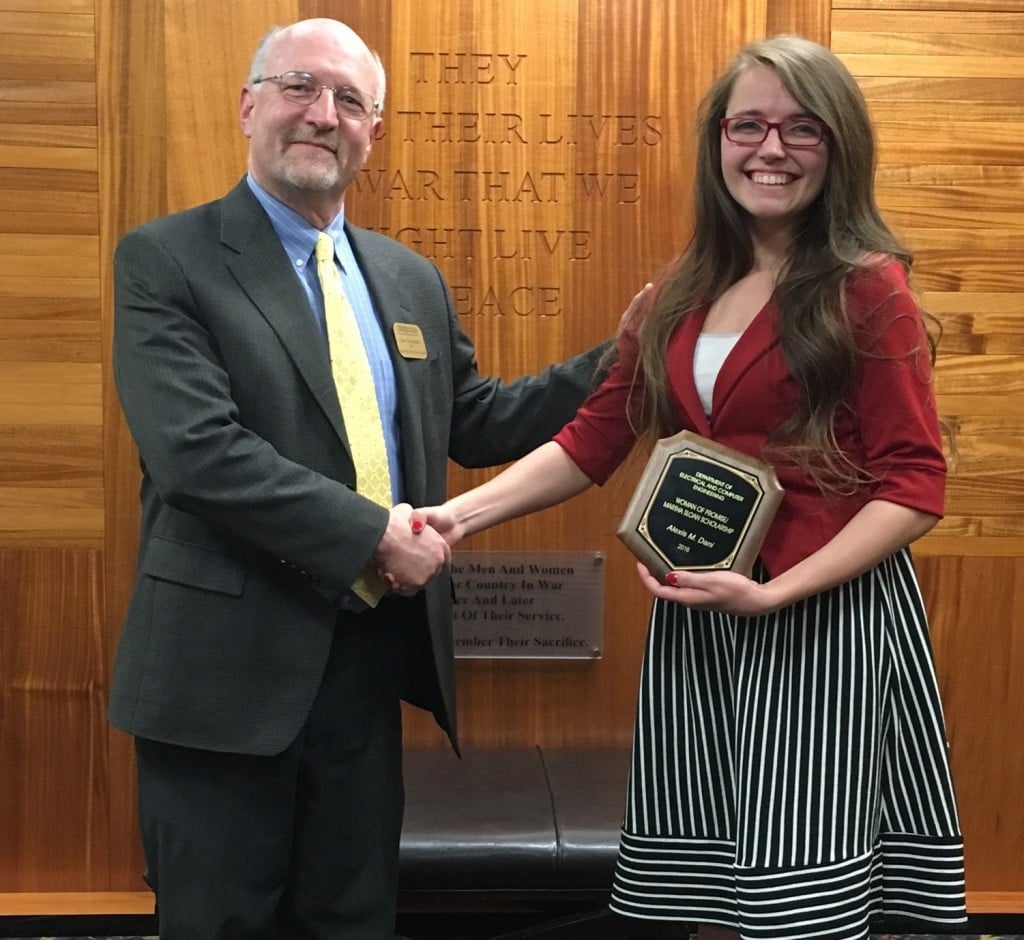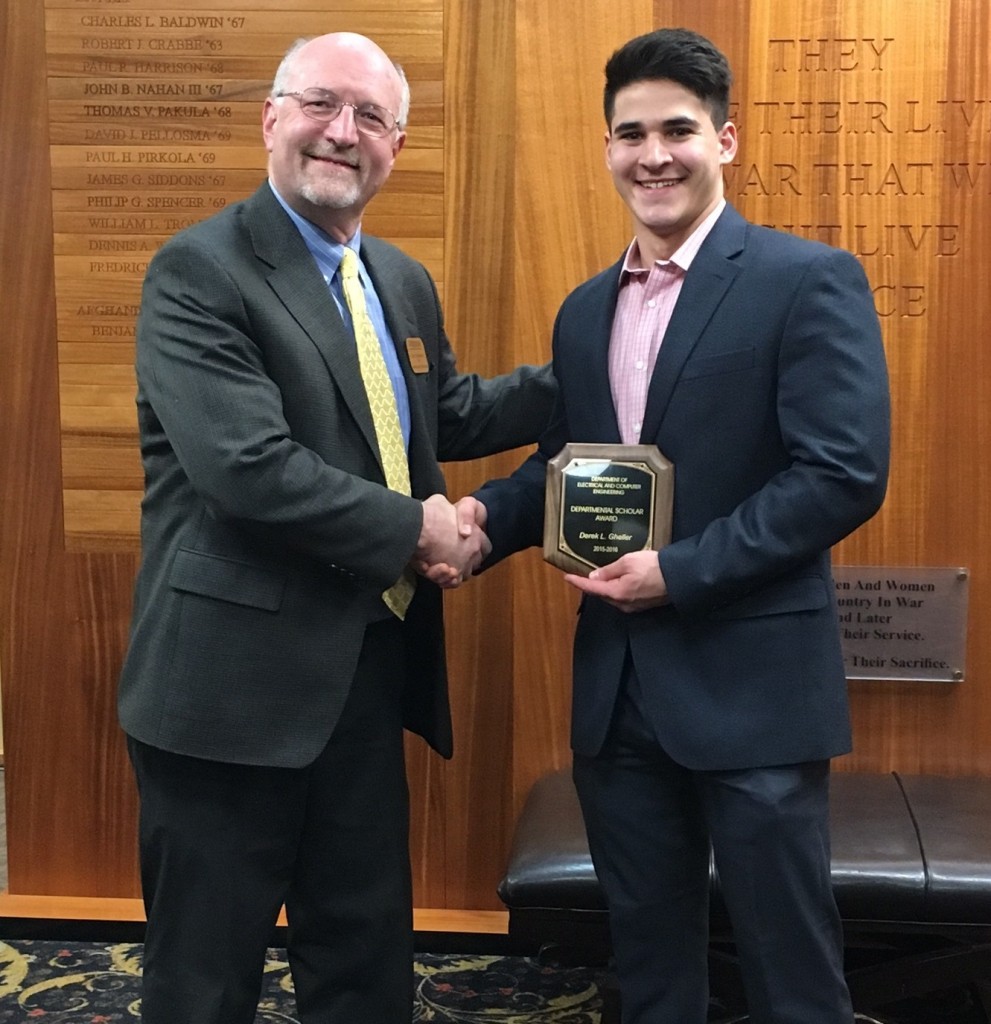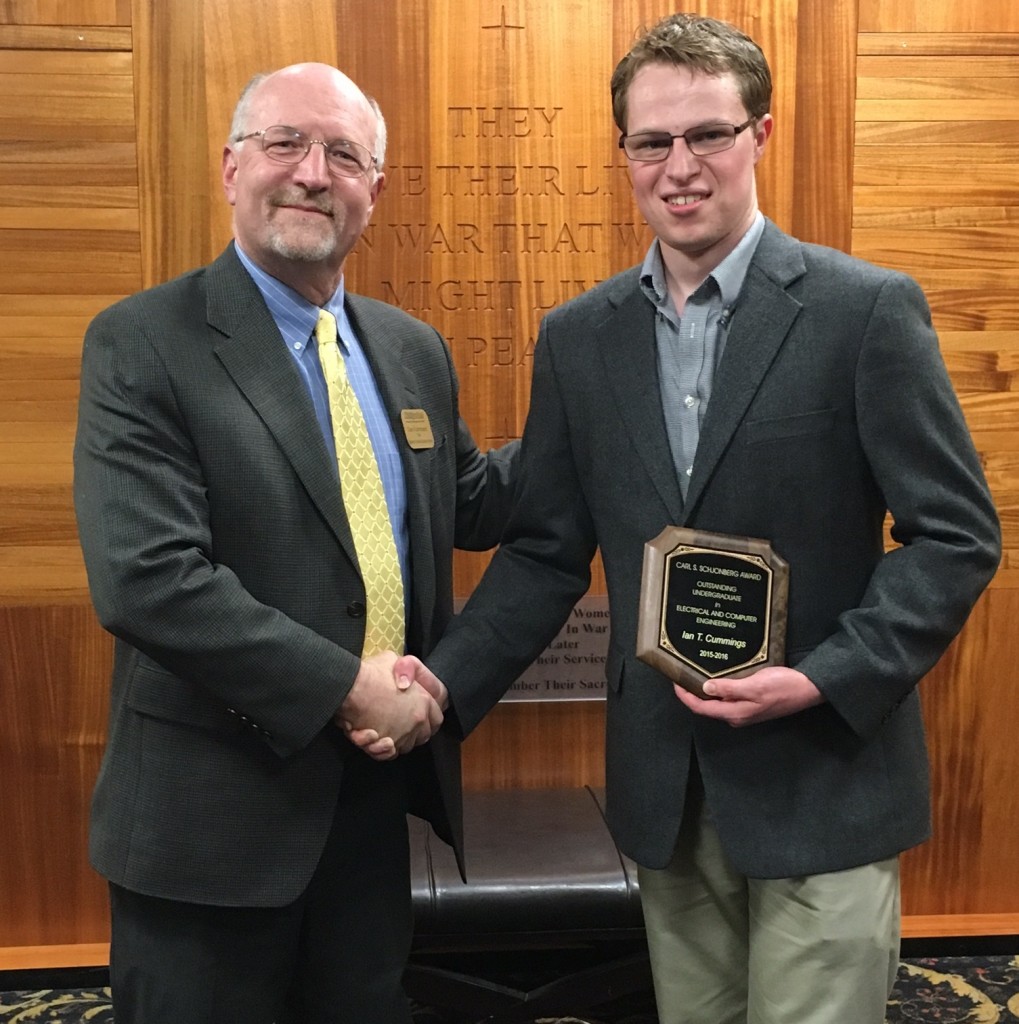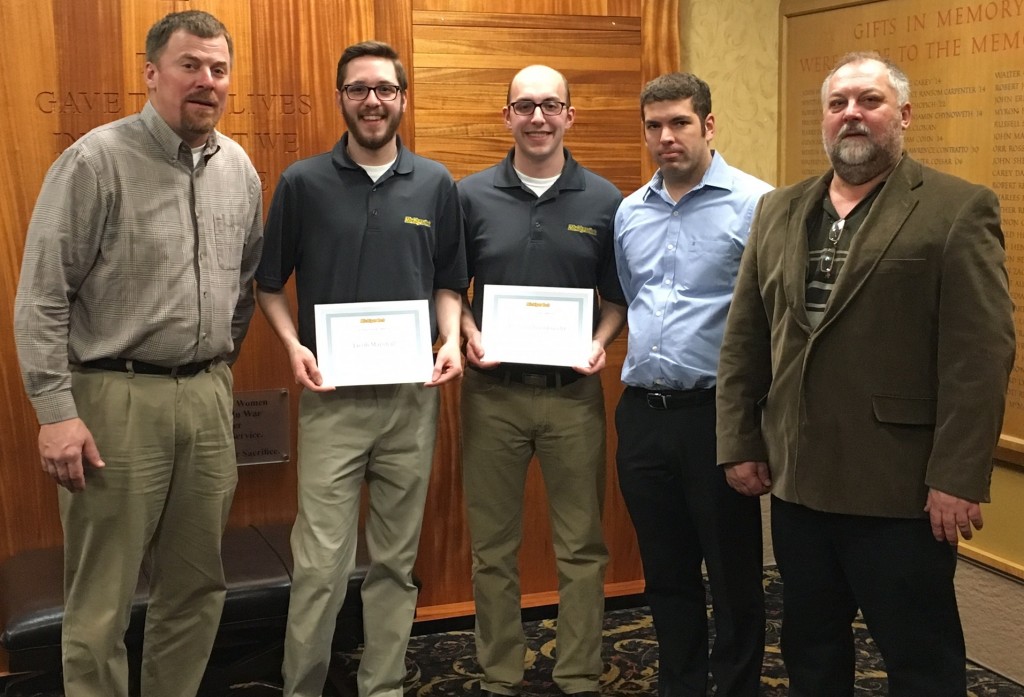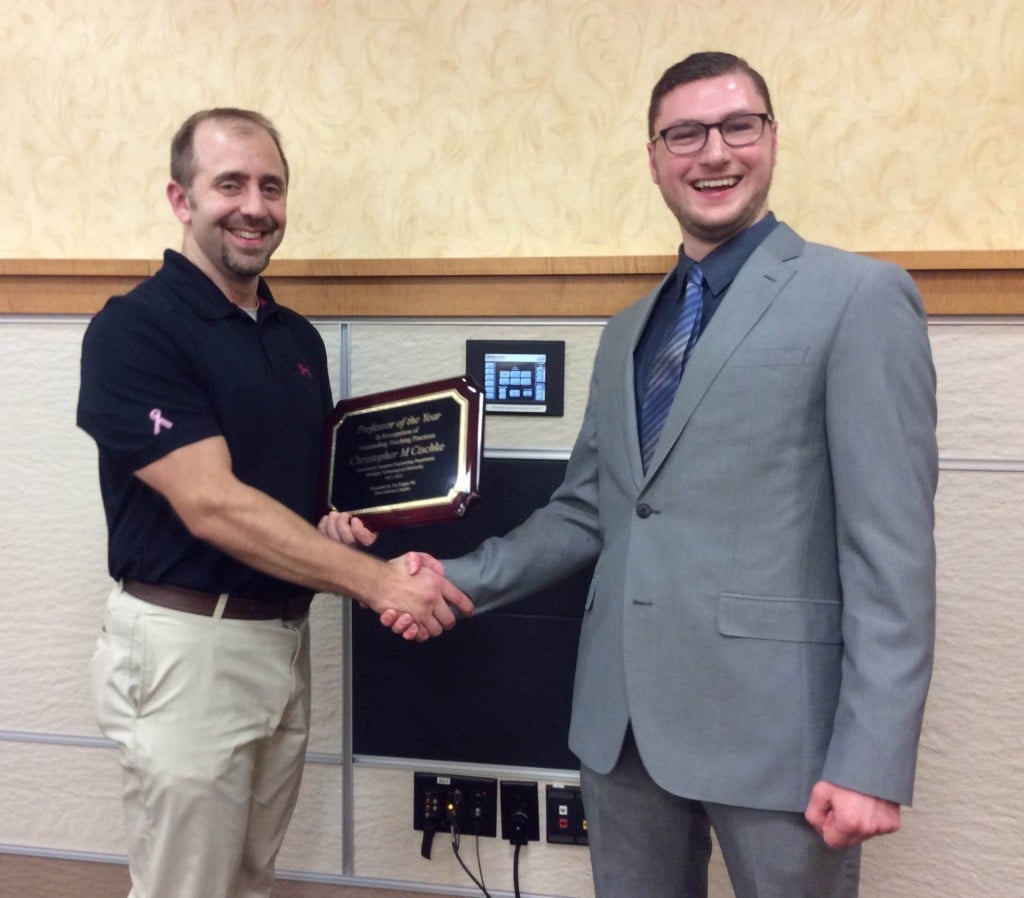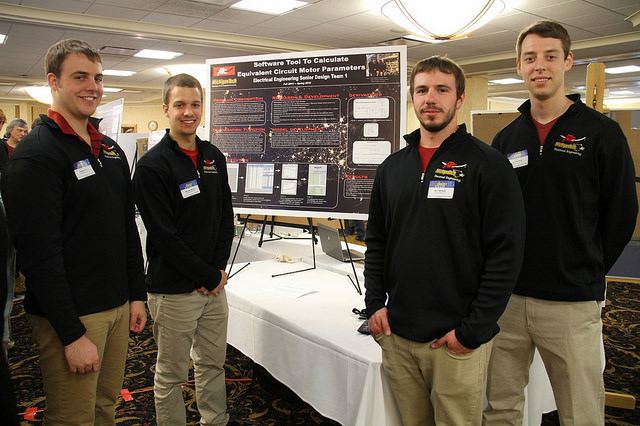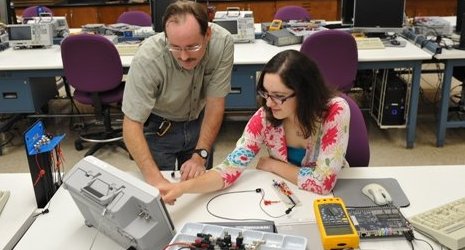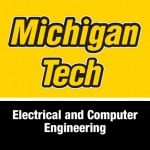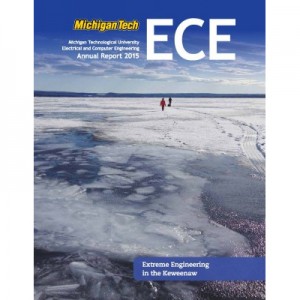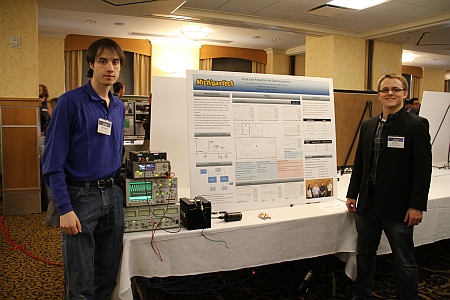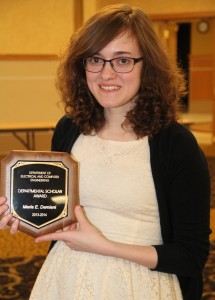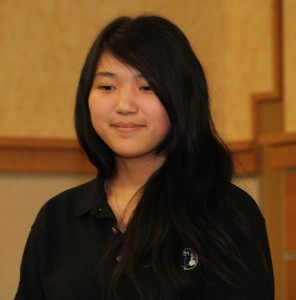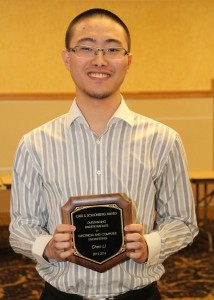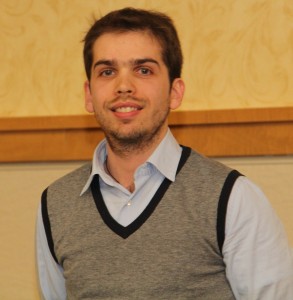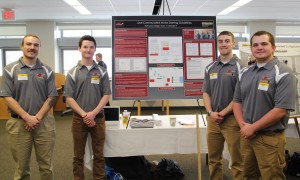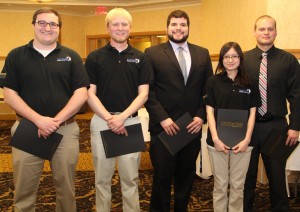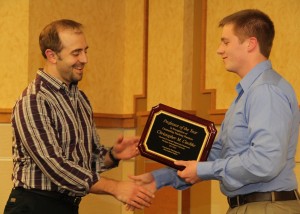
A Michigan Tech team is among the winners of the SICK Inc. TiM$10K Challenge. For the second year, students from universities around the country were invited to participate in the challenge, designed to support innovation and student achievement in automation and technology.
For the competition, teams were supplied with a 270-foot SICK LiDAR sensor and accessories, and challenged to solve a problem, create a solution or bring a new application to any industry that utilizes the SICK LiDAR.
The Tech team members — Brian Parvin, Kurtis Alessi, Alex Kirchner, David Brushaber and Paul Allen — earned Honorable Mention (fourth place overall) for their project, Evaluating Road Markings (the Road Stripe Evaluator). The innovative product aims to help resolve issues caused by poor road markings while reducing maintenance costs and improving motorist safety.
Each team was asked to submit a video and paper for judging upon completion of its project. A panel of judges decided the winning submissions based on creativity and innovation, ability to solve a customer problem, commercial potential, entrepreneurship of the team, and reporting.
“This was a unique project in that the team was required to identify a problem and develop a solution to it that is based on SICK’s TiM LiDAR — most teams are handed a problem and asked to create a solution,” said team advisor Tony Pinar, senior design coordinator in the Department of Electrical and Computer Engineering. “I think this format allowed the team to exercise even more innovation than a ‘typical’ project.”
Pinar said the team was well organized and demonstrated an excellent work ethic from day one. “It was exciting to watch them identify a salient problem and develop a functional proof-of-concept solution despite the setbacks that affected us all after spring break,” he said.
SICK is one of the world’s leading manufacturers of sensors, safety systems, machine vision, encoders and automatic identification products for industrial applications.
